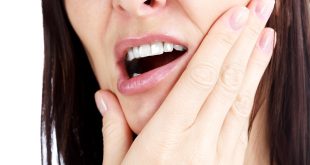How to Stop Throbbing Pain After a Root Canal? A root canal is a common dental procedure that saves a damaged or infected tooth. Root canal treatment offers a much-needed solution for those enduring severe tooth pain caused by deep decay or infection. While the procedure might evoke some apprehension, it is a straightforward and effective way to save a tooth that would otherwise need extraction. However, like any medical process, it can come with its challenges—post-treatment discomfort, particularly throbbing pain, is one that many patients experience.

The root canal procedure itself involves removing the infected pulp, thoroughly cleaning the canal, and sealing it to prevent future issues. It’s natural for the surrounding tissues and gums to respond to this intervention, often with some temporary throbbing pain. Fortunately, this discomfort is a normal part of the healing process and typically subsides as recovery progresses. Here’s how to stop throbbing pain after a root canal and ensure a speedy healing process:
1. Follow Your Dentist’s Instructions
Your dentist will provide post-treatment care instructions tailored to your case. Follow them closely, including taking prescribed medications and attending follow-up appointments to monitor healing.
2. Keep Your Head Elevated
When taking rest, the patient should keep his head elevated by using pillows. This position can help reduce inflammation and throbbing pain.
3. Root Canal Pain Relief Medicines
Non-prescription painkillers such as ibuprofen or acetaminophen can reduce throbbing pain and inflammation. Always adhere to the recommended dosage and consult your dentist if the pain persists.
3. Apply a Cold Compress
Using a cold compress on the affected area can numb the pain and reduce swelling. Wrap ice in a clean cloth and apply it to your cheek near the treated tooth for 10–15 minutes at a time.
4. Rinse Mouth with Saltwater
A saltwater solution can cleanse the inner sides of the mouth and soothe inflamed tissues. Just dissolve a teaspoon of salt in a glass of warm water, and gently rinse your mouth with this solution.

5. Stick to Soft Foods
Avoid hard, crunchy, or sticky foods that may irritate the treated tooth. Opt for soft, easy-to-chew foods like soup, mashed potatoes, yogurt, and smoothies to minimize pressure on the area.
6. Practice Good Oral Hygiene
Keeping your mouth clean is essential for recovery. Brush your teeth gently around the treated area and rinse with a dentist-recommended mouthwash or warm saltwater solution to prevent infection.
7. Avoid Clenching or Grinding Teeth
If you have a habit of teeth grinding (bruxism), it can worsen post-root canal pain. Consider using a mouthguard or consulting your dentist for additional solutions to protect your teeth.
8. Get Enough Rest
Proper rest allows your body to heal. Avoid strenuous activities for a few days after the procedure and prioritize sleep to speed up recovery.
9. Reach Out to Your Dentist if Needed
If the pain persists for more than a few days, worsens over time, or is accompanied by fever or swelling, contact your dentist immediately. These could be signs of complications, such as infection, requiring prompt attention.
Conclusion: How to Stop Throbbing Pain After a Root Canal
Throbbing pain after a root canal is typically temporary and manageable with the right care. By following these tips and staying in touch with your dentist, you can alleviate discomfort and focus on healing. Remember, patience is key—most patients feel significantly better within a few days and enjoy the long-term benefits of a healthy, pain-free smile!
Also Read: How to Sleep on first night after tooth extraction



